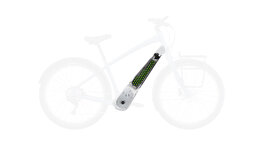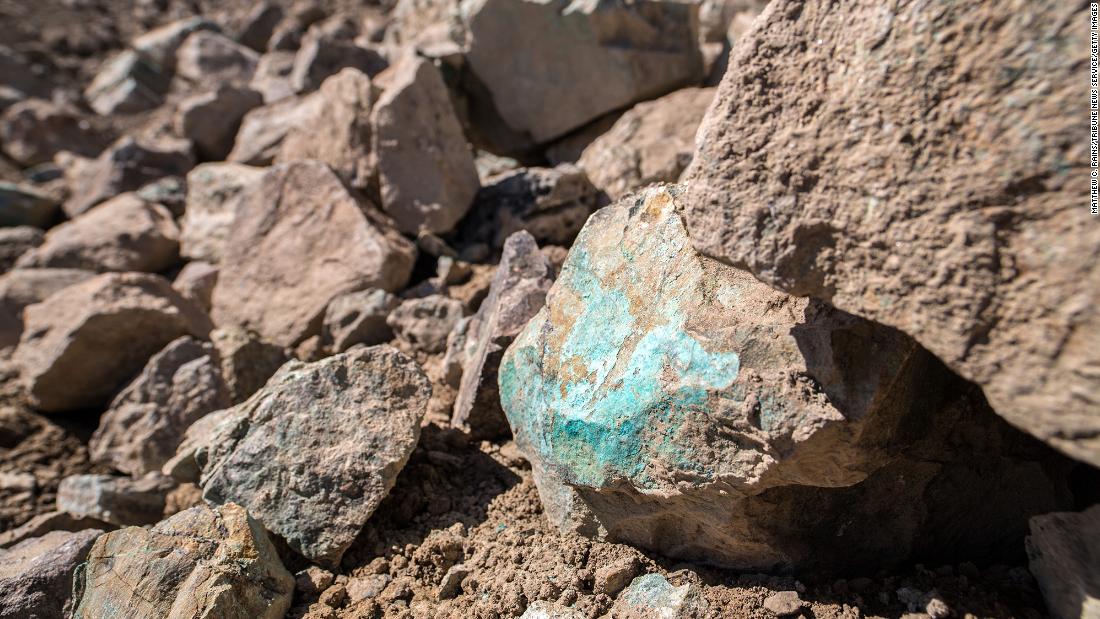Hi guys! I saw this press release from Specialized today, and thought it was positive and interesting. It appears that they have created a path to recycle all Specialized ebike batteries. I'm going to attach their official release to this post, and I welcome your input on other ways to recycle electric bike batteries, and non-Specialized products. Some companies, like F2H Power, offer battery repacking and upgrade services, which I've filmed talked about before. Hope you're all well!
####
Specialized Bicycles Fulfills Commitment to Solve Electric Vehicle Battery Recycling
Continued development between industry leading partner Redwood Materials and a new logistics partnership with Atlanta-based non-profit, Call2Recycle, positions Specialized as the largest global eBike manufacturer with a complete path to recycle all its eBike batteries in the USA.
MORGAN HILL, Calif., August 19, 2021 - Specialized Bicycles today announced the completion of an earlier commitment to have a path to recycle all its e-bike batteries sold in the USA by the end of 2021. The achievement was made possible through a new strategic partnership with the Atlanta-based non-profit Call2Recycle, a pioneer in the field of battery collection and recycling logistics, to solve the critical step of getting batteries from customers and bike shops to Specialized’s industry-leading recycling partner Redwood Materials, created by Tesla co-founder JB Straubel.
The United States has the fastest growing electric bicycle market without an established lithium-ion (Li-Ion) battery collection and recycling program. According to Deloitte, 130 million eBikes are expected to be sold globally between 2020 and 2023, making them the most popular battery-powered vehicle on the planet. In March 2021 Specialized announced a partnership with Redwood Materials, sharing the vision of maximizing the yield of reclaimed materials and ultimately establishing a circular battery economy. The new logistics partnership with Call2Recycle represents a significant step forward in making sure that all Specialized eBike batteries make it safely to recycling facilities like the kind operated by Redwood Materials.
This Fall, Specialized and Call2Recycle will begin training Specialized Turbo eBike retailers to become Li-Ion battery collection sites, equipped to collect Specialized bicycle batteries for recycling. As retailers complete battery recycling training, riders will be able to search for qualifying locations on Call2Recycle’s website. Specialized is committed to developing additional resources for riders and retailers to make sure that all batteries can be safely and effectively recycled.
“Electric bikes are a powerful tool in the fight against climate change, and the challenge of battery recycling is larger than what Specialized can solve alone. That is why we are proud to be one of nearly 20 bike brands who are working with PeopleForBikes to develop an eBike battery recycling program which serves the entire industry. We are proud to lead this effort, and to use our experience for the benefit of the bike industry and the planet.” -Mike Sinyard, Specialized Founder and CEO.
“E-mobility, notably eBikes, is perhaps the most visible example of the growing electrification of our economy. We are excited by Specialized’s commitment to safely and responsibly recycle the batteries that make these climate-friendly products possible and look forward to partnering with them to create a healthier planet." – Leo Raudys, President and CEO, Call2Recycle.
Specialized is committed to making products that last, reducing the environmental impacts of its operations, and supporting the reuse or recycling of its products and has made eBike battery recycling central to its sustainability commitments. Learn more here.


About Specialized
Specialized Bicycle Components was founded in 1974 by riders for riders. Based in Northern California, we focus on the rider’s need for functional and technically advanced products that provide a performance benefit.
About Call2Recycle
Call2Recycle, Inc. is committed to protecting and preserving the environment through responsible end-of-life management of batteries, cellphones, and related products. Founded in 1994, the not-for-profit organization is a leader in turnkey battery management through its education and awareness efforts, expertise in collection and logistics, and responsible recycling.
####
Specialized Contact | Kelly Henningsen
[email protected] | (408) 607-9042
####
E-Bike Recycling at Specialized
We believe the future of local transportation looks more like an e-bike than a car. This is great for the long-term reduction of carbon emissions, but it also means that the unique components of e-bikes, such as batteries and drive units, will eventually need to be recycled. The recent growth in electric vehicles is on pace to overwhelm the established recycling infrastructure in many parts of the world. We are addressing this problem in the following ways:
####
Specialized Bicycles Fulfills Commitment to Solve Electric Vehicle Battery Recycling
Continued development between industry leading partner Redwood Materials and a new logistics partnership with Atlanta-based non-profit, Call2Recycle, positions Specialized as the largest global eBike manufacturer with a complete path to recycle all its eBike batteries in the USA.
MORGAN HILL, Calif., August 19, 2021 - Specialized Bicycles today announced the completion of an earlier commitment to have a path to recycle all its e-bike batteries sold in the USA by the end of 2021. The achievement was made possible through a new strategic partnership with the Atlanta-based non-profit Call2Recycle, a pioneer in the field of battery collection and recycling logistics, to solve the critical step of getting batteries from customers and bike shops to Specialized’s industry-leading recycling partner Redwood Materials, created by Tesla co-founder JB Straubel.
The United States has the fastest growing electric bicycle market without an established lithium-ion (Li-Ion) battery collection and recycling program. According to Deloitte, 130 million eBikes are expected to be sold globally between 2020 and 2023, making them the most popular battery-powered vehicle on the planet. In March 2021 Specialized announced a partnership with Redwood Materials, sharing the vision of maximizing the yield of reclaimed materials and ultimately establishing a circular battery economy. The new logistics partnership with Call2Recycle represents a significant step forward in making sure that all Specialized eBike batteries make it safely to recycling facilities like the kind operated by Redwood Materials.
This Fall, Specialized and Call2Recycle will begin training Specialized Turbo eBike retailers to become Li-Ion battery collection sites, equipped to collect Specialized bicycle batteries for recycling. As retailers complete battery recycling training, riders will be able to search for qualifying locations on Call2Recycle’s website. Specialized is committed to developing additional resources for riders and retailers to make sure that all batteries can be safely and effectively recycled.
“Electric bikes are a powerful tool in the fight against climate change, and the challenge of battery recycling is larger than what Specialized can solve alone. That is why we are proud to be one of nearly 20 bike brands who are working with PeopleForBikes to develop an eBike battery recycling program which serves the entire industry. We are proud to lead this effort, and to use our experience for the benefit of the bike industry and the planet.” -Mike Sinyard, Specialized Founder and CEO.
“E-mobility, notably eBikes, is perhaps the most visible example of the growing electrification of our economy. We are excited by Specialized’s commitment to safely and responsibly recycle the batteries that make these climate-friendly products possible and look forward to partnering with them to create a healthier planet." – Leo Raudys, President and CEO, Call2Recycle.
Specialized is committed to making products that last, reducing the environmental impacts of its operations, and supporting the reuse or recycling of its products and has made eBike battery recycling central to its sustainability commitments. Learn more here.


About Specialized
Specialized Bicycle Components was founded in 1974 by riders for riders. Based in Northern California, we focus on the rider’s need for functional and technically advanced products that provide a performance benefit.
About Call2Recycle
Call2Recycle, Inc. is committed to protecting and preserving the environment through responsible end-of-life management of batteries, cellphones, and related products. Founded in 1994, the not-for-profit organization is a leader in turnkey battery management through its education and awareness efforts, expertise in collection and logistics, and responsible recycling.
####
Specialized Contact | Kelly Henningsen
[email protected] | (408) 607-9042
####
E-Bike Recycling at Specialized
We believe the future of local transportation looks more like an e-bike than a car. This is great for the long-term reduction of carbon emissions, but it also means that the unique components of e-bikes, such as batteries and drive units, will eventually need to be recycled. The recent growth in electric vehicles is on pace to overwhelm the established recycling infrastructure in many parts of the world. We are addressing this problem in the following ways:
- Our Turbo team in Switzerland has created state-of-the-art battery and charging systems to maximize performance and durability. Through our Mission Control app, we continue to learn how riders interact with our electric bicycles. We use this information to constantly improve performance, including battery life.
- Our ultimate goal is reuse. Specialized has partnered with Redwood Materials, a leader in lithium-ion battery recycling, to help recover materials we can bring back into our manufacturing and evaluate our design processes for better reuse or recyclability at end of life. We are focused on creating safe and effective pathways for Specialized e-bike batteries to be recycled, first in the US by the end of 2021. Together, we will then share these learnings for effective recycling across the broader bike and micro-mobility industries in the US and roll out to other markets starting in 2022.
- In keeping with our desire to develop collaborative solutions, we are working with our peers in the bike industry to establish recycling programs in regions where they don’t currently exist. In the US, we are working with the People for Bikes Sustainability Working Group to develop a battery recycling solution that is safe and easy for consumers and dealers.
- There are regional variations in battery recycling policies. Specialized recycles lithium-ion batteries according to local regulations where they exist, including Canada and several European countries.
Attachments
Last edited:


